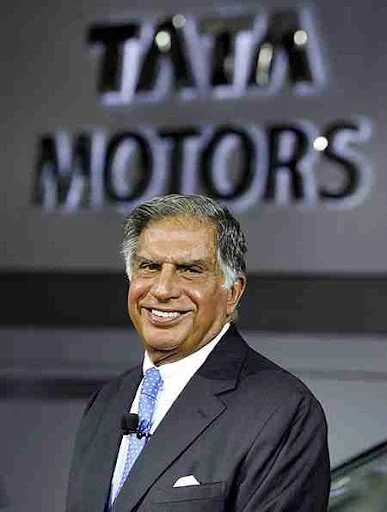Ratan Tata: A Titan of Industry, Philanthropy, and Humility
Ratan Naval Tata, the visionary who steered the Tata Group into the global spotlight, passed away on [Insert Date], leaving behind an unmatched legacy that transformed not only the Indian industrial landscape but also the very fabric of Indian philanthropy.
Born on December 28, 1937, in Bombay (now Mumbai), Ratan Tata's life was one marked by exemplary leadership, unwavering commitment to ethical business practices, and a deep compassion for humanity.As the scion of the Tata family, Ratan Tata was expected to follow in the illustrious footsteps of his predecessors.
However, it was his individual brilliance, strategic foresight, and profound humility that truly set him apart. Educated at Cornell University and Harvard Business School, he could have easily chosen to build a career overseas, but his heart lay with India and the family business. He joined the Tata Group in 1962, initially working on the shop floor of Tata Steel. It was a humble start for a man who would later transform the company into a global powerhouse.
Ratan Tata took over as the chairman of the Tata Group in 1991, succeeding J.R.D. Tata at a time when India was opening up its economy to liberalization. This transition proved to be a significant turning point, not only for the Tata Group but also for Indian industry. Under his leadership, Tata Motors launched the Indica, India’s first indigenously developed car, and later acquired global giants such as Jaguar Land Rover and the Corus Group.
These acquisitions were part of Tata’s bold vision to transform the Tata Group into a global brand, and he succeeded remarkably.However, what truly distinguished Ratan Tata from his peers was his commitment to ethical business practices. He was known for refusing to engage in corrupt practices, even if it meant losing business.
His moral compass was always guided by the values instilled by his family and his personal commitment to integrity. Despite the challenges, Tata always maintained that “what is good for the country must be good for the Tata Group,” a philosophy that shaped his decision-making throughout his tenure.While his accomplishments in business are legendary, Ratan Tata's contributions to philanthropy are equally profound.
A significant portion of Tata Group’s profits, as per the Tata tradition, was always channeled into charitable endeavors through the various Tata Trusts. These Trusts have been at the forefront of social causes in India, contributing to health, education, rural development, and more.
Under Ratan Tata’s leadership, the Tata Trusts expanded their reach, impacting millions of lives across India.In the aftermath of the 26/11 Mumbai attacks, Tata’s response was a reflection of his compassionate leadership. He ensured that the families of the victims, regardless of whether they worked for the Taj Hotel or not, were taken care of. His efforts to rebuild the iconic Taj Mahal Palace Hotel, one of the primary targets of the attacks, symbolized resilience and a refusal to succumb to fear.Beyond his business and philanthropic work, Ratan Tata was an advocate for innovation and technology.
He played a pivotal role in fostering an environment where startups and young entrepreneurs could thrive. He was an early investor in several Indian tech startups, including Ola and Paytm, showing a deep understanding of the evolving global business landscape and a willingness to bet on the future.
Throughout his life, Ratan Tata remained a private, soft-spoken individual, shying away from the limelight despite his monumental success. His humility was evident in his personal life as well. He lived modestly and was known for his love of dogs and his quiet, introspective nature.
Despite his immense wealth and influence, Tata was never one to flaunt his success.Ratan Tata’s passing marks the end of an era for Indian industry, but his legacy will endure for generations. He leaves behind a thriving Tata Group, a stronger Indian economy, and a society that has benefited immeasurably from his philanthropic initiatives.
More than just a business leader, Ratan Tata was a visionary who believed in building not just businesses, but a better world for everyone.In the words of Ratan Tata himself, “I don’t believe in taking right decisions. I take decisions and then make them right.”
This philosophy guided his life, and in doing so, he made an indelible mark on the world. His contributions, both to business and society, will continue to inspire future generations long after his passing.

